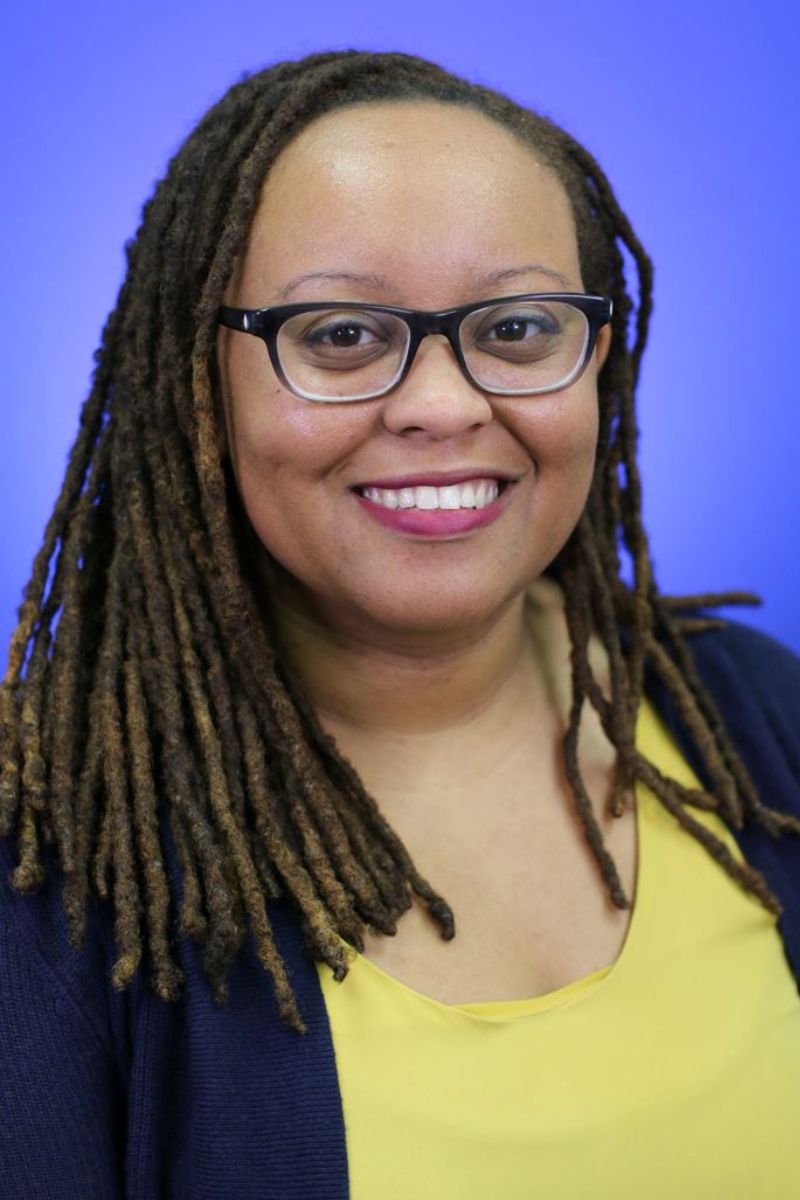A commitment to better health outcomes for families

If you asked Kyrah Brown how long she’s been involved in the world of public health, she’d tell you that she was in it before she knew the public health field had a name. Today, through community outreach and invaluable research alongside students in the Maternal and Reproductive Health Equity Research Lab, Brown is committed to better health outcomes for people and their children.
In this interview, Brown discusses her journey to public health and the biggest issues facing the field today.
Why did you decide to get into public health advocacy in the first place?
My family is very community engaged and they had us advocating at City Hall and involved in civic engagement at a very young age. Growing up in a marginalized neighborhood, I remember being interested in advocacy around the health issues and living conditions facing my neighborhood. It wasn’t until the end of my undergraduate degree and start of graduate school that I understood that what I was supporting was public health.
Taking it a step further, it was around that time that I found out about community psychology. That’s what led me down this path to work in collaboration with communities to improve their living conditions.
What led you to focus on Black maternal health?
During my time in graduate school in Wichita, Kansas, about 10% of the population was Black. The area was getting a lot of attention because Black infant mortality rates were extremely high at that time. That’s where it got on my radar.
It connected personally for me. My baby brother was stillborn when I was 10, and I did not know anyone else who had experienced stillbirth or infant death. We have always actively grieved and celebrated him; for our family, this was not stigmatizing at all. But it was only during my time in Wichita that I began to meet more Black families who experienced the same thing my family had, and at a much broader scale.
What led you to founding the Maternal and Reproductive Health Equity Research Lab at UTA?
I’ve always wanted to lead a research team and UTA really provided the capacity and infrastructure. As a graduate student, my research mentor was a Black woman who led our research team. I take inspiration from her model of mentorship and research team development where you have students developing skills they need to thrive in the workforce.
UTA really provided that support, foundation, infrastructure and resources to fully create this lab and mold it into something I wanted it to look like.
What would you say are you trying to accomplish through the lab’s work?
First, we want to generate high-quality research that examines socio-structural factors and influences Black women’s reproductive health across the lifecourse. That’s very broad because there are so many facets to it, whether we are talking about health care or the built environment and how they impact reproductive health.
Second, we want to lend our expertise and support to community organizations that are trying to ask questions about what is happening where they live by providing research tools and evidence that helps them find answers.
What is a top priority that community groups in North Texas are trying to address when it comes to maternal health?
The top priority that organizations, especially Black-led organizations, is trying to address is the promotion of legislation and policy that ensures all people have access to safe, affordable, high-quality care and support. And at the same time, many are developing innovative, culturally appropriate ways to respond to the growing reproductive health needs in our community and beyond.
What can members of the public do to make an impact and help improve maternal health in the future?
Individuals can volunteer their time to support an organization’s delivery of programs and services. And of course, individuals can donate or provide financial support to organizations, particularly grassroots, community-based organizations to help advance the life-changing work that they are already doing. This is important because it ensures community-driven solutions to dismantling inequities in maternal and reproductive health.